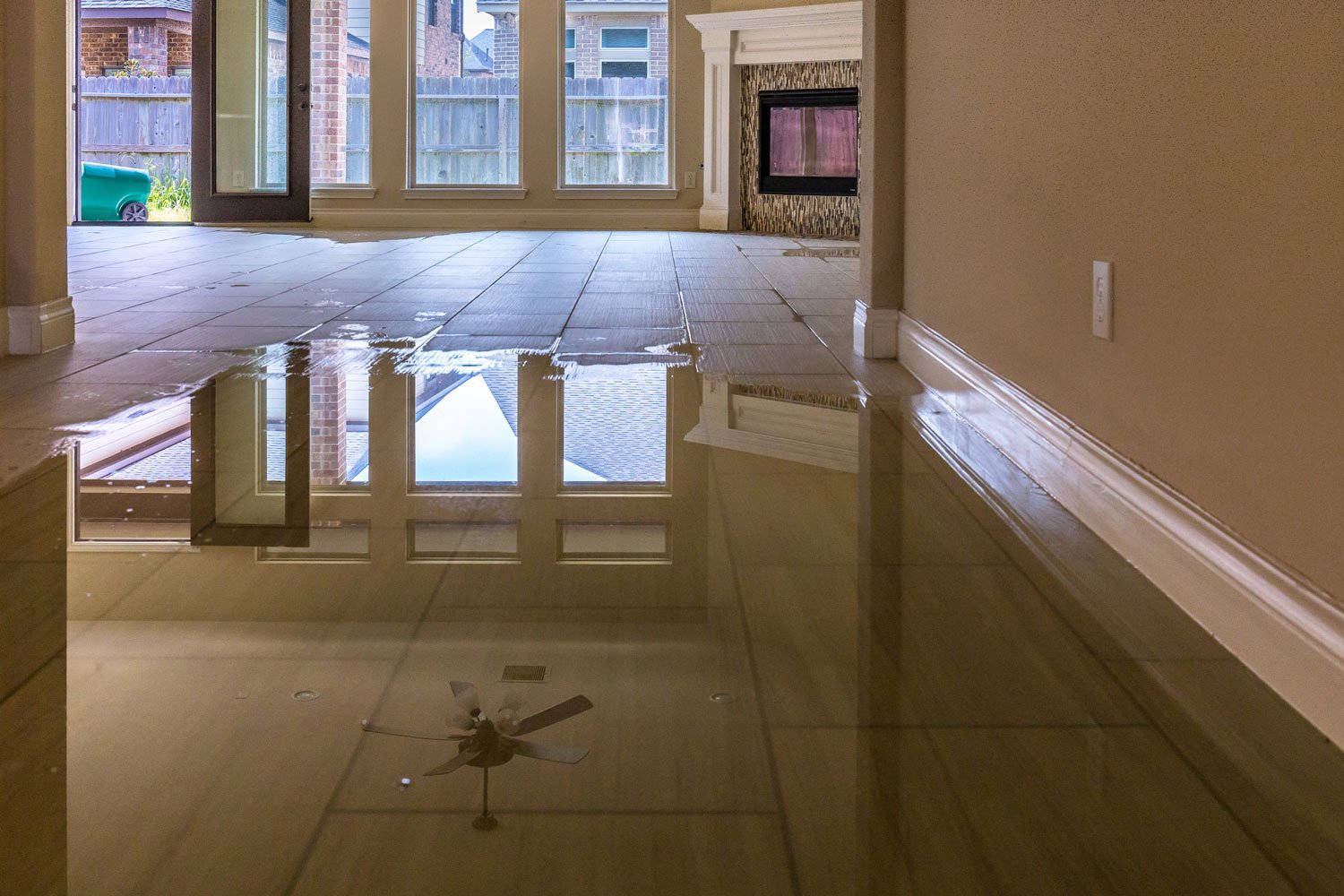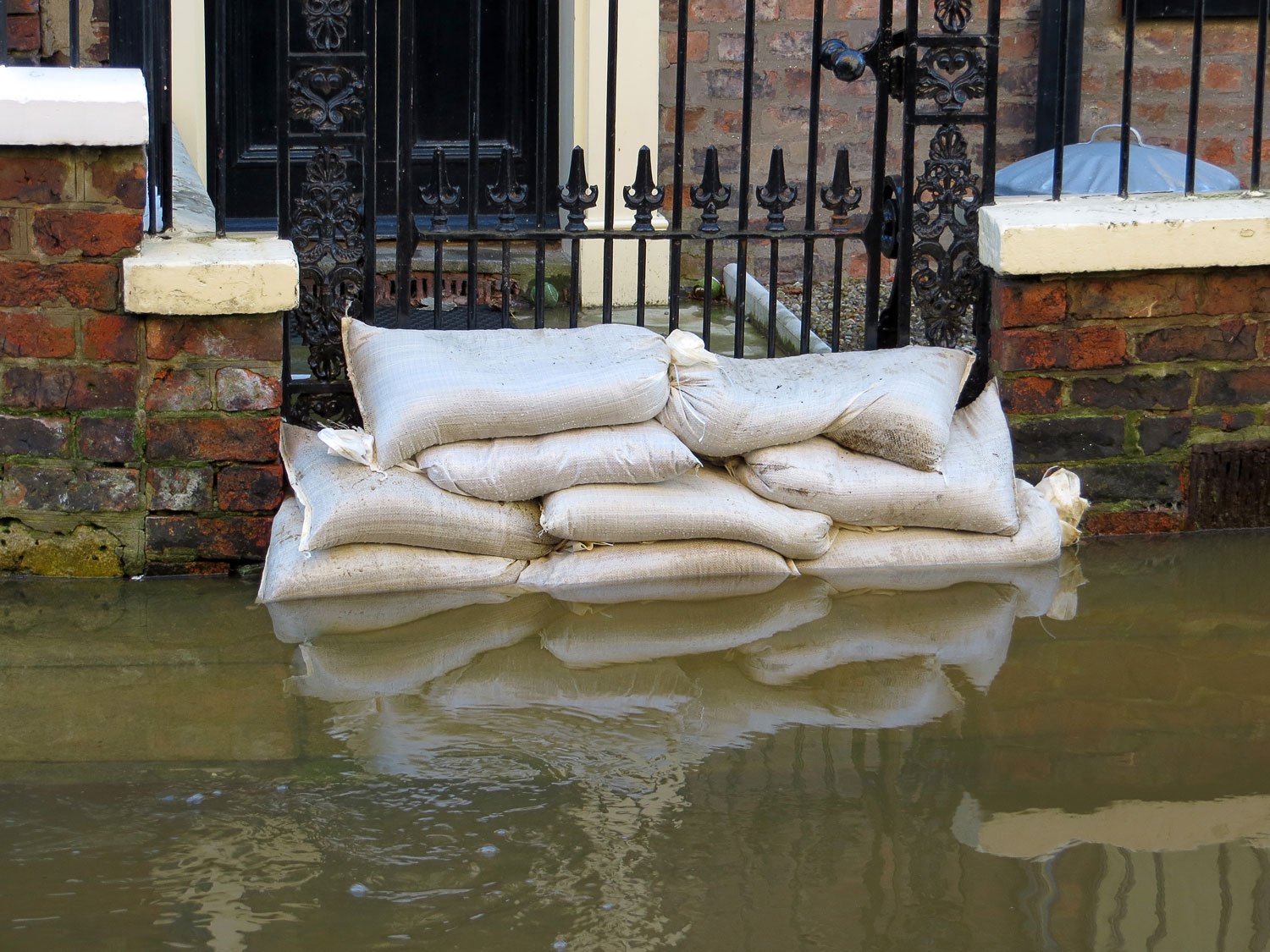What To Do If Your Home Floods

- What to do if your home floods
- How to prepare for a flood
- What to do during a flood
- How to clean up after a flood
What to do if your home floods
Over 3.5 million homes in England are at risk of flooding, with 1 in 12 of these considered as high risk. With global warming on the rise, it’s likely that these figures may increase over the next decade. If you’re worried about your house being hit by flooding, you should first check which flood zone you fall under. The Environment Agency lists that there are 4 types of flood zone:
Flood Zone 1:
Incredibly low risk of flooding – less than 0.1% chance of flooding from rivers or the sea
Flood Zone 2:
Fairly low risk of flooding – 0.1% to 1% chance of flooding from rivers, or 0.1% to 0.5% of flooding from the sea
Flood Zone 3:
Moderate risk of flooding – more than 1% chance of flooding from rivers, or more than 0.5% chance of flooding from the sea
Flood Zone 3b:
High risk of flooding – at least 5% risk of flooding from rivers or the sea
Floods can be overwhelming for those involved. In the moment, you may not know what to do or how to act, which is why preparation and safety precautions play such a crucial role. As well as this, it’s imperative you know where to look for help and the hazards you may face whilst waiting for professional assistance.
How to prepare for a flood
So, you’ve just heard on the news that your area is likely to flood within the next 24 hours. What can you do?
Though you can’t save your whole house in a matter of hours, there are a number of precautions you can take to help both yourself and your local community. The first thing you should do is alert your neighbours, particularly the elderly and disabled. It’s crucial to make them aware of the current situation and it may be of benefit to them to know your plan.
Consider your surroundings. Do you have loose furniture in your garden? If so, move it inside. It’s a good idea to move any furniture from both outdoors and indoors to the top floor of the house if you can manage it. The same goes for your pets! If you have rabbits, reptiles or any other animals that live outside, find temporary shelter for them in your home.
In terms of your belongings, secure any valuables or sentimental items in a safe place either upstairs or with a family or friend. Any important documents should be stored in a waterproof bag and kept on your person at all times. You should also roll up any carpets or rugs in the house and take down your curtains. This will prevent them from being permanently destroyed by the contaminated flood water.
It’s vital that you unplug and move any electrical appliances in your home. Electrical items pose a serious hazard in the event of a flood. Your gas, electricity and water must be switched off too to limit any unnecessary damage.
One of the most common mistakes people make is neglecting their vehicles. Even with just a couple of hours to spare, there’s still time to move your car to a safe place, such as a nearby car park or road outside of the affected areas. Don’t forget about your bins either, else your litter will be scattered all over the street.
For a full list of the precautions you can take to protect your home in the event of a flood, check out our blog on How To Protect Your Home From Floods.
What to do during a flood
In the event of a flood, it’s crucial that you follow all instructions from your local authority and emergency services. They will provide you with relevant, up-to-date information regarding your situation. When possible, let the services know that you’re safe. The National Flood Forum operates a 24-hour service for emergency help; you can call them on 03459 881 188.
Once told to evacuate your home, make sure to leave your property as secure as possible and don’t attempt to return home until you’re told to do so. If you can, arrange to stay with family or friends, otherwise you’ll need to contact your insurance company to help you arrange alternative accommodation for a period of time.
You should make an extra effort to wash your hands often as you may be handling contaminated items without realising. Remember – flood water may contain traces of sewage and litter. It’s essential to be vigilant at all times. Walking through moving water poses a range of risks – from electrical hazards to uneven surfaces – and should be avoided at all times.

How to clean up after a flood
If physically capable, there are several ways you can aid the clean-up process. However, for health and safety reasons, you should only undertake the tasks you know you can manage. Elderly residents and children, for example, should stay clear of the property until professionals have declared that it’s safe to re-enter. If you do attempt to begin clearing up the mess, it’s important to avoid throwing anything away until you’ve spoken to your insurance company. Instead, make a list and take photographs of any damaged items.
Upon entering your home, make sure you’re suitably dressed for any hazards you may face. We suggest you wear gloves, boots, waterproof clothing and a protective face mask. Do not use any electrical items inside the house or turn on your water supply, power or gas until you’ve contacted your suppliers to check it’s safe to do so. Alternatively, you can use a generator – but only outside.
The key thing to do is ventilate your home. This can be done by opening any windows or doors and turning extractor fans on. Your property may be subject to mould if the water is not dealt with quickly and effectively. Mould thrives in humid conditions and requires professional removal to ensure all traces have been eradicated.
Should you require it, ICE Cleaning offer a comprehensive Mould Remediation service.
Potential dangers
There are a range of hazards associated with flooding. The water may contain various harmful items such as:
- Fallen power lines
- Human or livestock waste
- Household, medical or industrial hazardous
- Coal ash waste
- Vehicles
- Debris
- Wild or stray animals
The safest thing to do is avoid contact with the flood water. Exposure may result in wound infections, rashes or stomach upset. If you are exposed to the contaminated water, wash the affected area with soap and warm, clean water. If you don’t have access to soap, use alcohol-based wipes or hand sanitiser.
Professional flood restoration
If you’ve been affected by flooding, ICE Cleaning offer emergency flood restoration services to both commercial and domestic customers across the UK. With teams stationed in a variety of locations, we’re able to reach you within just 60 minutes of your call for help. Our technicians have over years of experience in the industry and hold an array of professional accreditations such as Dewpoint Professional, IOSH and Safe Contractor.
Check out our Flood Restoration page on our website or give a member of our team a call on 0208 066 0360 to find out about the full range of flood services we provide. Should you need it, we are also able to communicate directly with other businesses – such as insurance companies.
Please note – we only provide cleaning services, not flood rescue services. If you require medical assistance, call an ambulance on 999.

Speak with me today,
I’m here to help
By asking you a few questions either via phone or email I can immediately provide a realistic estimation of the cost.
You’re in good company. We’ve cleaned for the following commercial clients… View all

Why choose us?
- Cater to a wide variety of cleaning situations
- Nationwide coverage, available 24/7
- Cater to commercial and domestic clients
- Free survey provided prior to quotation
- Emergency response team
- Offer a bespoke service designed to suit all your needs
- All technicians hold professional health and safety qualifications, including BICSc, IOSH, Dewpoint Professional & Safe Contractor
We’re fully accredited
We place best practise, professional expertise and health and safety at the core of our business. We’re fully compliant with all legal obligations. You can view a list of our accreditations below, or visit our Health & Safety page for more information.











-RGB-small.1707319151.jpg)




















